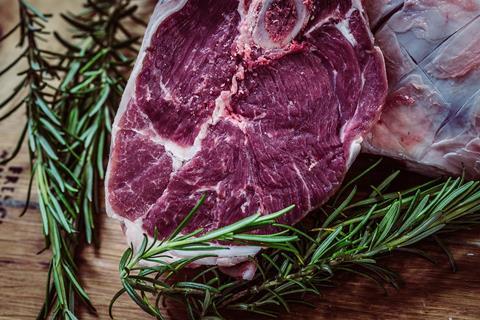The meat industry has responded to a study from the University of Oxford in which scientists are calling on the Government for a ‘meat tax’.

The national media has been quick to report on the university’s research and claims that the tax could “prevent almost 6,000 deaths” and save the UK more than £700m in healthcare costs.
Responding to the claims, Roger Kelsey, chief executive of National Craft Butchers has commented: “Advances in animal husbandry and modern butchery techniques mean that meat and meat products are produced environmentally more efficiently and are much healthier than in the past.
"Surveys show that overall purchases of meat are up, although individually, consumers are consuming less, being more selective and buying better quality meat and meat products.
"Meat is a popular choice and valuable source of protein and nutrients in a balanced healthy diet. A meat tax would impact disproportionately on the lower paid and deprive many of a valuable food source.”
National Farmers' Union of England and Wales (NFU) national livestock board chairman Richard Findlay has also responded by reiterating the benefits of red meat to human health.
He said: “Scientific and medical communities both agree consuming recommended quantities of red meat is beneficial to human health and provides the body with a ready source of essential vitamins and minerals.
“British farmers will therefore continue to provide safe, traceable and affordable food for us all to enjoy, whatever our preference, as part of a healthy, balanced diet.”
Following the reports, the Agriculture and Horticulture Development Board (AHDB) took to Twitter to promote guides it has produced explaining what health claims can be made about beef, lamb and pork. The guides are designed to help the meat industry promote red meat and can be read here.
At the request of Meat Management, AHDB provided the following statement on behalf of the Meat Advisory Panel (MAP) from Dr. Carrie Ruxton, BSc, PhD.
She said: “Meat consumption has declined significantly and average intakes are now well below NHS guidelines. Red meat provides valuable nutrients, such as iron, zinc, vitamin D and B vitamins. These are often in short supply in the diets of young children, teenage girls and women, especially those from lower income households.
“A tax on red meat would be a retrograde step, both for overall diet quality in women and girls and for health inequalities.
“There is no high-quality evidence linking red and processed meat with heart disease, stroke or diabetes, and a risk of bowel cancer only applies when weekly intakes exceed 700g. As few people in the UK are at this level of consumption, a general meat tax would be like using a sledgehammer to crack a nut.
“Chronic disease prevention would be far more effective if it focused on smoking, excess drinking, and body weight rather than a single food source like meat, which brings many nutritional benefits.”
Meat Management is interested to hear the views of other industry members regarding the ‘meat tax’ and the portrayal of meat in the national media. To get in touch, email editorial@meatmanagement.com.
This story was originally published on a previous version of the Meat Management website and so there may be some missing images and formatting issues.















